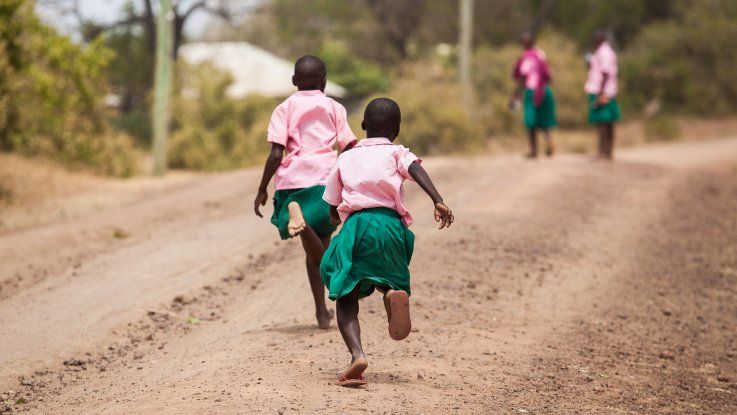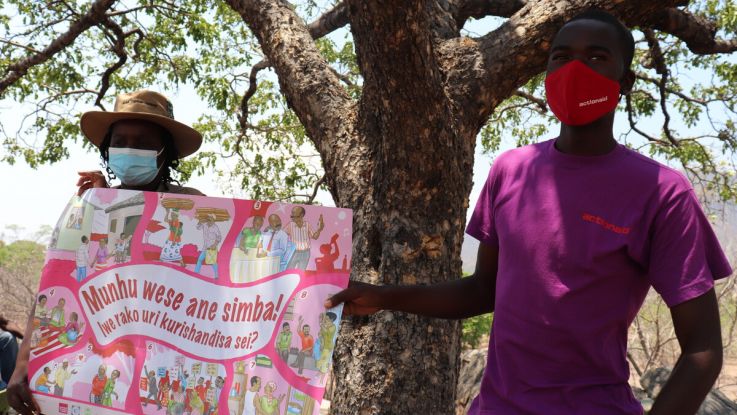Why medicalisation is not a solution for FGM
31 August 2016
28 Too Many is a values based charity working to end female genital mutilation (FGM). Our primary focus is on research and enabling local initiatives to end FGM in the 28 African countries where it is practised and across the diaspora.
Recently, we published a report on The Medicalisation of FGM. Despite much progress towards ending FGM in recent years, the number of cases recorded worldwide annually is still staggeringly high. Equally worrying though, is the increase in the number of health professionals who are carrying out FGM procedures: the 'medicalisation of FGM'.

ActionAid. Photo: ActionAid
Hoda Ali, a sexual health nurse and one of our trustees, welcomed our report. "I have heard of cases of FGM carried out in private clinics all over the world," she said.
Medicalisation is not a solution for FGM, it simply institutionalises it and reinforces the practice.
Hoda continued, "As a medical professional myself, I find it unbelievable that the very people entrusted to care for us and bound by the professional health ethic 'to do no harm', are those carrying out FGM procedures in so many countries. Medicalisation is not a solution for FGM, it simply institutionalises it and reinforces the practice."
So what exactly is the medicalisation of FGM?
Medicalisation includes, but is not limited to:
- any FGM procedure carried out by a healthcare professional or in a healthcare facility (at home or abroad);
- the provision of medical equipment for the use of performing FGM;
- the carrying out of symbolic cutting as an alternative to FGM;
- providing medical training to traditional cutters and those carrying out FGM,
- and any procedures to re-establish FGM after giving birth (reinfibulation).
Over the last few years I have heard many stories from FGM survivors who have undergone FGM carried out by health professionals, I have met a midwife who herself carried out the practice and I have heard personal testimonies of members of high ranking families who have undergone this form of FGM.
What is wrong with medicalisation?
While some people have argued that medicalisation of FGM reduces the risk of infection and danger from complications such as blood loss, this argument ignores the fact that FGM is abuse. No form of FGM is ever acceptable and medicalisation neither makes the procedure safe, nor does it address the long term physical and psychological harm caused by FGM.
In addition, there have been two recorded deaths during procedures of medicalised FGM in Egypt in the last two years alone. Yet one of the biggest problems of medicalising FGM is that, as Hoda highlights, it hinders attempts to eliminate FGM around the world by giving medical backing to a procedure that is not only dangerous, but also ethically, morally and in most cases, legally wrong.
No form of FGM is ever acceptable.
FGM is a severe form of gender based violence and a violation of women's and girls' rights and its medicalisation does not change this.
What 28 Too Many's research shows
At 28 Too Many, research is the core of our organisation, and while doing research for our Kenya update, due out at the end of 2016, we discovered that FGM in Kenya was carried out by a medical professional on 14.8% of girls and women aged 15-49.
What is even more disturbing though is that the figure for girls aged 0-14 is higher at 19.7%, indicating that this may be a growing trend. Alarmed by this increase, and based on our personal experiences, we decided to carry out further research into the subject which led us to publish our report.
Can we do anything to prevent medicalised FGM?
At 28 Too Many we believe so, and our report makes clear recommendations as to how we believe we can end the medicalisation of FGM. First and foremost, it is important that there is a joint approach between government, policy makers, professional medical organisations, the international community and NGOs and local community groups.
Organisations such as 28 Too Many and ActionAid work closely with a number of partners, both at local and international level as we recognise that the initiatives to end FGM and the medicalisation of FGM will only be successful by working together at all levels.
It is important that there is a joint approach between government, policy makers, professional medical organisations, the international community and NGOs and local community groups.
On a personal level, you can help by supporting us at 28 Too Many, ActionAid and the other organisations who are working towards this goal. Almost all of our team are volunteers, and donations go to furthering our work.
We believe that our research gives a clear message as to what needs to be done in the fight against FGM – end it, don't medicalise it. Have a look at our report and our other research and I'm sure you will agree. Do share with others you know too... together we can end FGM.



